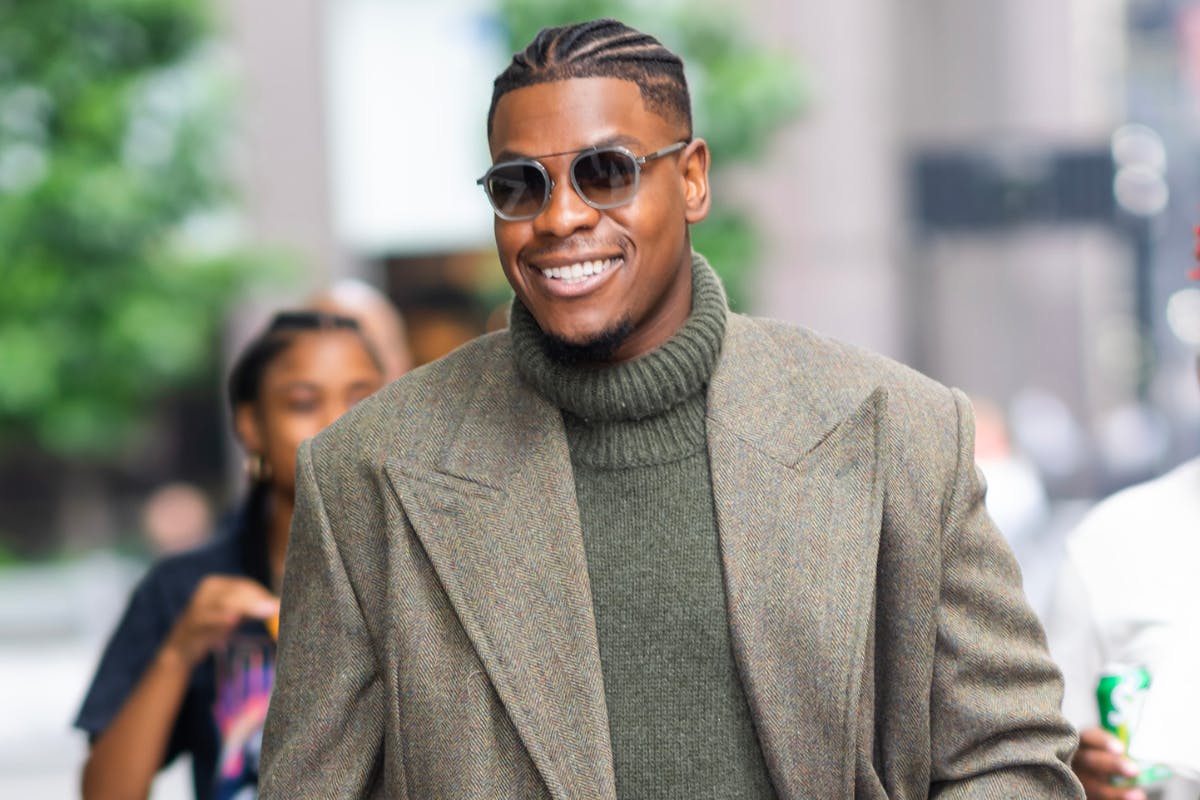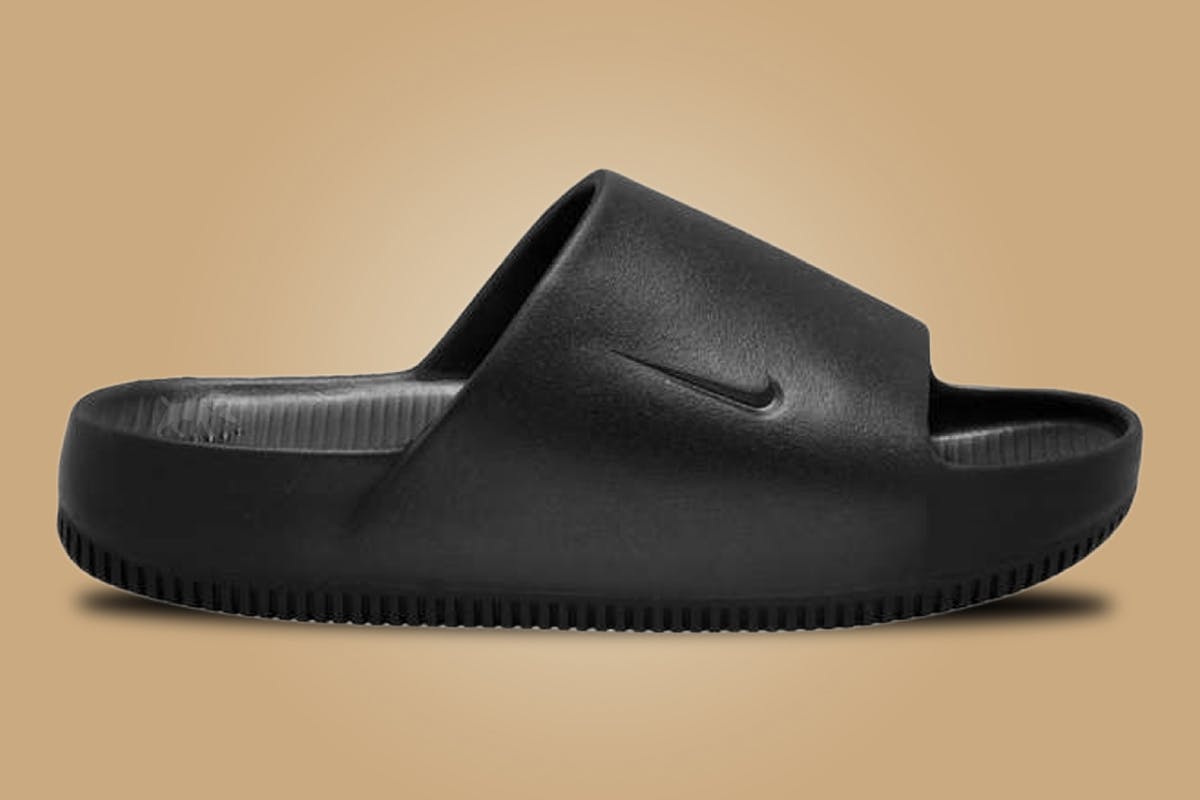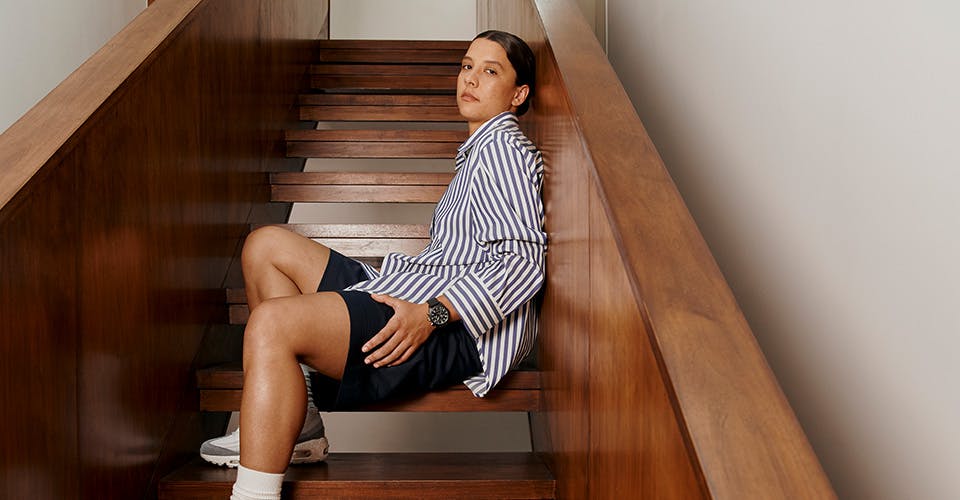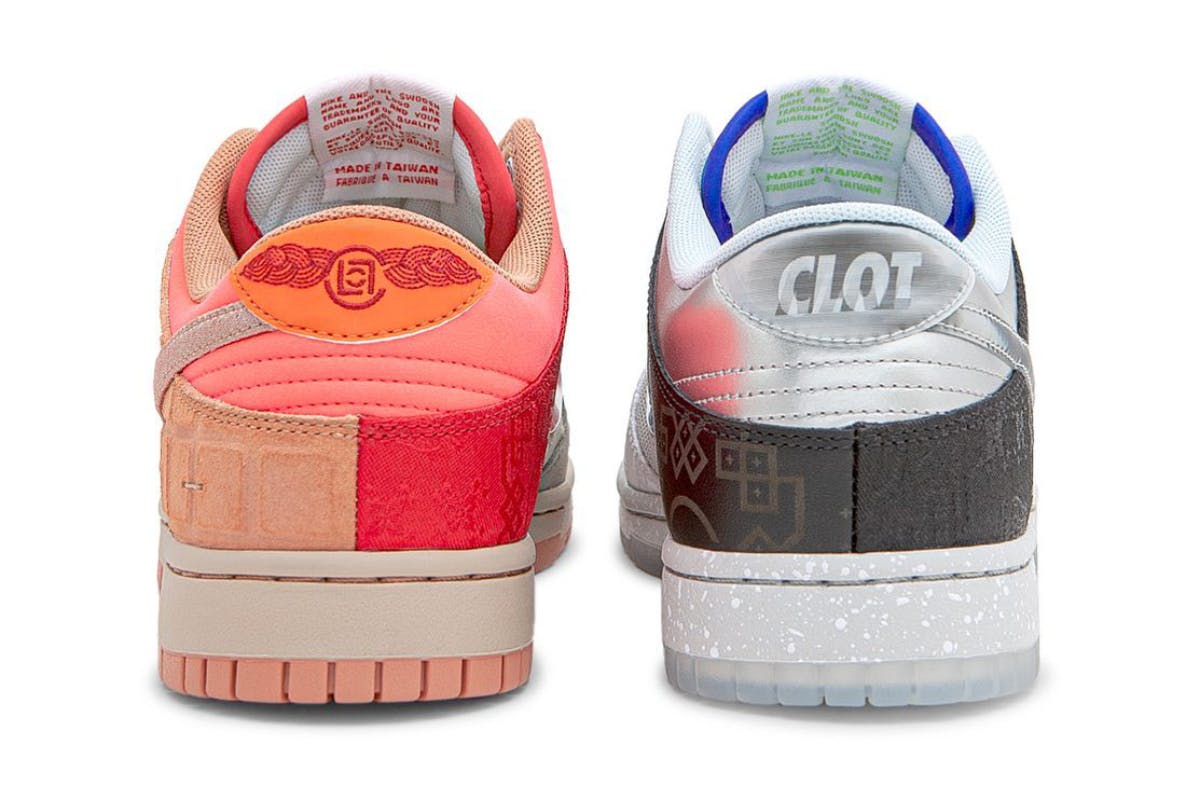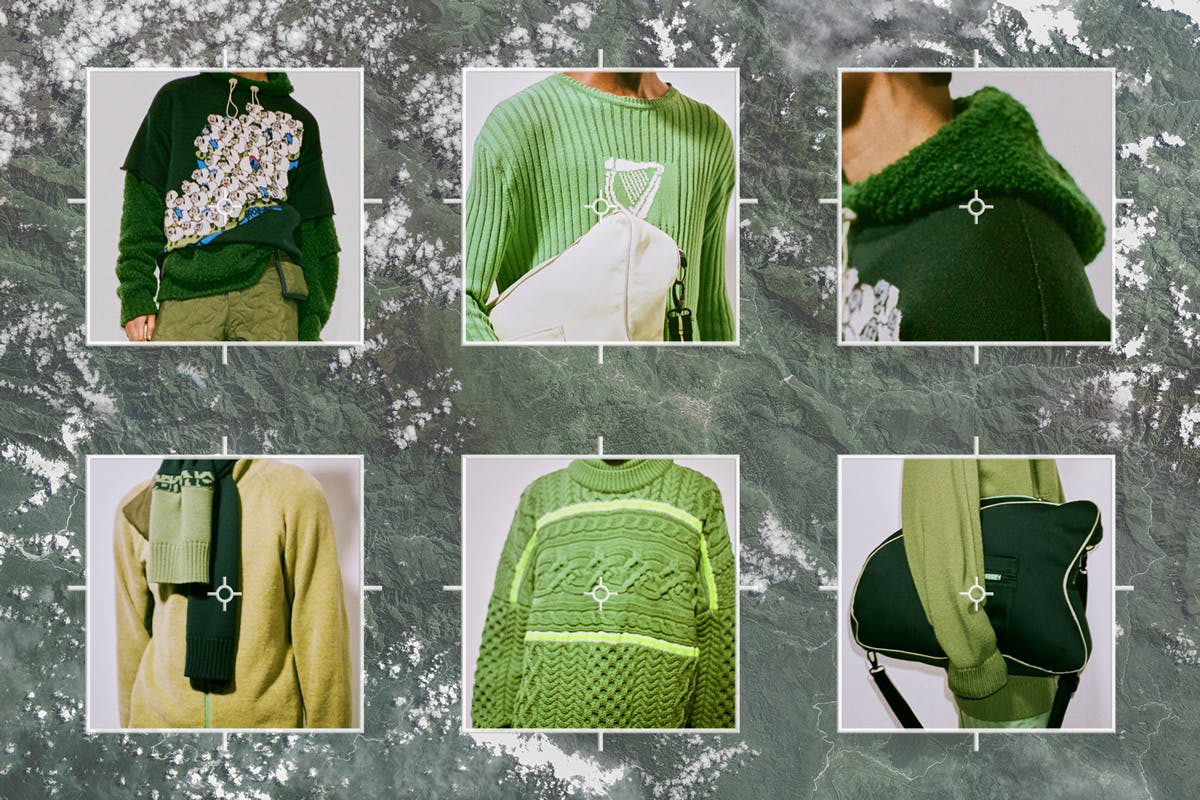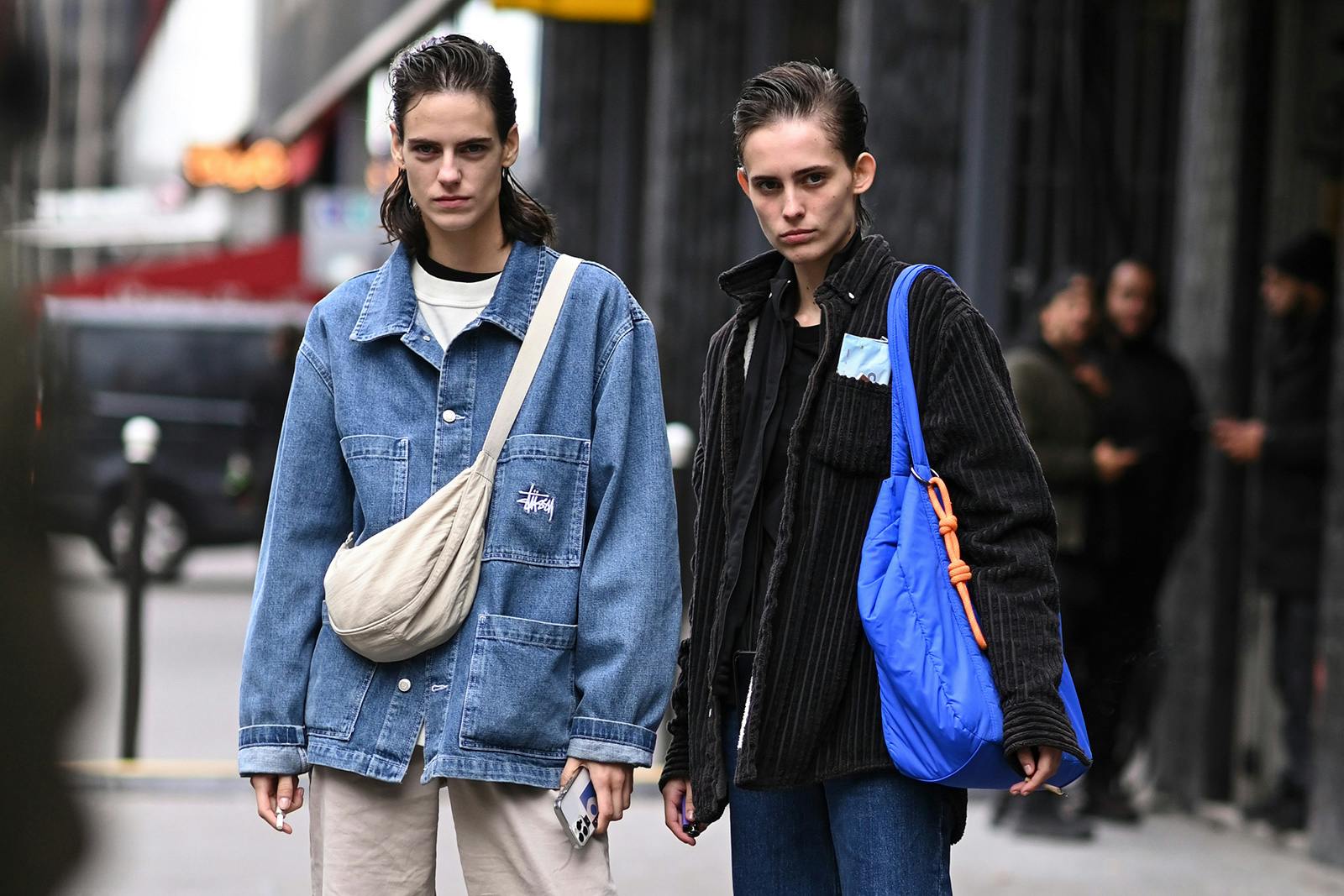
Nothing quite exemplifies the term 'global domination' in the fashion world as much as what streetwear brands have done in the last 2 decades.
Streetwear is inescapable: you can buy it from Louis Vuitton or H&M, from luxury boutiques or counterfeit tourist markets. The style is so ubiquitous now that pretty much every single collection of men’s clothing made today borrows from streetwear aesthetics — whether it’s from up-and-coming Instagram brands or million-dollar fashion houses. Streetwear and runway fashion have been blurring together for years.
Streetwear has become a global language, and that’s a pretty powerful thing when you think about what’s going on in the world right now. Our Under the Radar series and top clothing brands hub is packed with lookbooks from all over the globe: Indonesia, Netherlands, Nigeria, wherever. Throw a dart anywhere on a map and someone’s making streetwear there.
What’s more, streetwear brands are constantly evolving — and that’s their biggest strength. Social media has torn down the walls between cultures, and that gives designers more scope than ever to do whatever the hell they want. There are no rules now: just take it and make it yours.
Trends might come and go quicker than ever these days, but streetwear brands' progression means things are never boring. On the surface, and for the untrained eye it might seem just box logos and flashy sneakers, but dig a little deeper and you’ll find a thriving world of upstart designers pushing the style into new directions — the market is so big now that underdog names have a real shot at making a viable business out of their creations.
The streetwear scene is much more than a place to buy clothes. Like nightclubs, football stadiums, skate parks and concert venues, it’s a place for people to feel simultaneously individual and part of something bigger. Whether it’s kids blowing their pocket money on the latest hype, or an office worker treating themselves to a new pair of sneakers on payday, everyone’s engaging with it — and that’s great.
So without any further ado, in no particular order, this is Highsnobiety's ongoing list of the most relevant streetwear brands in the industry.
From luxury streetwear, to the OGs, to the up-and-comers, scroll down to check our list of streetwear brands to know in 2023
Fear of God
Fear of God was born in 2013, coinciding with its founder Jerry Lorenzo's attempts to reconnect with his faith. The essence of the American streetwear brand is contained in a book he read as a child with his parents, My Utmost for His Highest, a religious writing by Oswald Chambers. Lorenzo often spoke about how these readings inspired him to create his brand.
Fear of God, defined by the designer himself as a luxury streetwear brand, is an expression of his lifestyle and aesthetic, far removed from the commercial machinations and seasonality of fashion presentations. Lorenzo's intentions are to convey a message beyond just the product, but without trying to indoctrinate nonbelievers.
The style of the Fear of God garments is heavily influenced by what Jerry Lorenzo grew up with as a child; there are references to the 1980s by the guys from The Breakfast Club, to the 1990s with the looks of Kurt Cobain and Allen Iverson and baseball. This mix of references results in plaid flannel shirts with side zippers, oversized bomber jackets, baggy shorts with hems left raw, striped T-shirts, and the ultimate understated (or eternal to stay on brand) designs of luxury smart-casual.
Fabrics come from Japan and Italy and alternate with vintage pieces, creating timeless clothes and shoes that are easy and comfortable to wear every day and whose luxury is recognized in their aesthetics, garments, and prices. The designer calls it a solution-oriented style because anyone could wear these pieces without thinking too much about it, all the while counting on the fact that Fear of God’s tailored looks gives the wearer almost a feeling of exhilarating monastic lightness.
Similarly, he does not like to call himself a designer, but rather a "cultural prototypist," bringing together different styles, cultural phenomena, and images.
Fresh off of its first runway debut, Fear of God continues to redefine what it means to embrace casual luxury streetwear, making it a go-to brand for those who seek refined comfort and understated sophistication.
Off-White
Off-White, the brainchild of the late great Virgil Abloh, was one of the first modern fashion brands to bridge the gap between high fashion and streetwear, or to even imagine the possibility of creating this bridge.
The meaning of the brand Off-White is the gray area between black and white, Abloh’s lifelong project born as a dialogue between art, fashion, music and luxury. The goal is to add an intellectual layer to ferry streetwear, which has always been considered something cheap, into the luxury scene. A revelation brand, which has the merit of having turned the spotlight on the world of streetwear by using innovative conceptual designs and placing streetwear in new and original context in which the merchandise would take center stage.
The luxury streetwear brand has become an emblem of contemporary fashion with its distinctive diagonal stripes and bold typography. Off-White's collections are a fusion of cutting-edge design, premium materials, and a fearless approach to style. From graphic tees to statement accessories, each piece exudes a sense of urban sophistication.
A master of collaborations, Virgil Abloh worked with numerous brands, not only related to the fashion world, famous the Off White X Ikea collaboration in 2019 and the one with Pioneer (a company that deals with DJ equipment). And then Bon Marche, Selfridges, Timberland, Jimmy Choo, Rimowa. But most of all Nike.
After Abloh’s passing, whether on the runway or the streets, Off-White continues to redefine the boundaries of fashion, making it a go-to brand for those who crave innovation and cultural relevance.
Patta
What was once a small Amsterdam-based boutique Patta has transformed into an emerging streetwear giant with a long list of collaborations to boast. Whether enlisting the queen herself Erykah Badu for their Four Leaf Clover campaign with Converse or teaming up with Tommy Hilfiger to pay tribute to their hip-hop-inspired roots, Patta is carving out a lane of its own.
Featuring some of the best knitwear in the game, their clothing have bold graphics, captivating color combinations, and an unmistakable streetwear edge. Patta celebrates the raw energy of urban life, inviting you to make a statement and express your individuality through fashion.
Amiri
Mike Amiri Pusa, a young Iranian entrepreneur and designer, founded Amiri in 2014 in Los Angeles. A brand that was born from a passion for denim, the key element of the whole concept, was able to achieve success in a short time.
California, Los Angeles have contributed to achieve this goal: a context where pop subcultures, music, creativity are at the highest levels; Amiri has therefore become since the beginning, a reference point for many artists from the caliber of Gunna, Drake, Justin Bieber.
In 2018, the brand debuted on the catwalks of Paris and later, in 2019, Renzo Rosso's OTB group bought part of the brand's shares, with a role related to marketing strategies. Thanks this unbreakable connection with music, and in particular with global artists, Amiri has managed to infuse its urban, rockstar-inspired aesthetic around the world.
Amiri stands out for a style that, in addition to perfectly representing the modern, contemporary luxury concept, takes inspiration from the aesthetics of rock stars. Key element of Amiri is definitely this combination of fashion and music, a deep connection that has determined in a completely innovative way the image of the brand.
Pop Trading Company
Pop Trading Company is a streetwear brand that perfectly captures the essence of skateboard culture and translates it into elevated clothing that radiates the true essence of Amsterdam's fashion authenticity. A brand infusing their collections with the energy and creativity of the subculture, impossible to ignore.
Pop Trading Company's clothing combines functionality with contemporary design, embracing a refined aesthetic while honoring their skateboarding roots. From graphic tees to functional outerwear, their pieces reflect a sense of effortless style that resonates with skaters and fashion enthusiasts alike.
Stüssy
When talking about streetwear, a brand that has pioneered, shaped and continues to evolve this fashion style and community is Stüssy. Born in California's surf culture, the brand's collections embody an effortless coolness, blending laid-back West Coast vibes with a touch of urban edge that have truly become synonymous with streetwear aesthetics.
Stüssy's pieces feature their iconic logo, graphic prints, and a fusion of skate, surf, and music influences. From their essential hoodies to their playful accessories, each design reflects the brand's commitment to embracing subcultures and capturing the spirit of youth.
Thanks to its timely and fitting collaborations with the likes of Nike, Our Legacy, Tekla and Dries Van Noten just to name a few, Stüssy continues to be a symbol of authenticity and a driving force in the streetwear scene, making it a timeless favorite for those seeking a touch of California's sunny attitude.
Highsnobiety
Not only are we the ultimate source for the latest style news, trend guides, and sneak peeks at new most-hyped collabs, but now you can also shop our streetwear-inspired in-house Highsnobiety clothing line, alongisde our carefully curated Highsnobiety shop brand roster.
Founded in Berlin, Germany, our own-brand clothing label offers everything from unique collabs and merch drops to staple essentials. It probes formal items with a new twist, mixing classic shapes with casual and loose-fitting styles. Plus, each item comes with high-end quality, delivering luxury that doesn't break the bank.
UNDERCOVER
Jun Takahashi's UNDERCOVER likely stands as the pinnacle of Japanese streetwear. For almost three decades, the designer's unique visual approach has been a driving force shaping the current state of fashion, with earlier UNDERCOVER creations becoming highly prized items among collectors.
The ethos of this Japanese apparel label is most accurately captured by its own slogan: "We make noise, not clothes." UNDERCOVER embodies upheaval, defiance, and rebellion, fusing pop culture symbols with punk, bondage, goth, and post-modern aesthetics, crafting the archetype of the “punk” streetwear brand.
Carhartt WIP
Originally an American workwear label that unexpectedly garnered prestige in late 20th-century subculture, Carhartt was established in 1889 by Hamilton Carhartt in Dearborn, Michigan. The firm initially created durable attire for manual laborers from its distinctive duck canvas, and gradually became a trusted provider to Detroit's automobile factory workers, as well as blue-collar workers across America.
In 1989, German fashion creators Edwin and Salomee Faeh negotiated a deal to launch a European subsidiary of the brand named Work in Progress, crafting polished, stylized adaptations of Carhartt's offerings for the European skaters, and party-goers who were attracted to the brand's robust, reasonably priced attire. The rest is history, as since then, Carhartt has experienced rapid growth in the fashion world, emerging as one of the dominant streetwear brands in both in the US and globally.
NEIGHBORHOOD
Incepted in 1994 by Shinsuke Takizawa, often known as Shin, NEIGHBORHOOD or NBHD stands as another pioneer of Japanese streetwear. NBHD was integral to the original Harajuku streetwear wave of the early '90s - a Tokyo-based group of likeminded individuals who essentially laid the foundation of the Japanese streetwear culture, spawning labels like BAPE, UNDERCOVER, WTAPS, Hysteric Glamour, and GOODENOUGH.
NEIGHBORHOOD is a reflection of Takizawa's profound fascination for historical motorcycle subcultures, producing classic American apparel such as leathers, shirts, sweats, flannels, and headgear, all infused with a unique biker gang vibe.
While recent lines have witnessed NEIGHBORHOOD venturing into military, prep, Native American, and even early-20th century industrial workwear styles, it is still most celebrated for its genuine selvedge denim, crafted to stringent traditional standards and personalized with complex, natural distressed washes that range from conventional indigo fades to their signature “Savage” series.
Kith
Kith, founded by the one and only Ronnie Fieg, has become a powerhouse brand that seamlessly fuses streetwear with a touch of high-end luxury.
The brand's collections embody a refined and sophisticated aesthetic, blending quality craftsmanship with a contemporary edge that has become .
It all started when Fieg began chasing the magic formula of collaborations. In his stores you can find both sneakers from the usual known Nike, Adidas x Clarks, Clarks, Timberland, New Balance, Red Wing and other collaborations. Same goes for clothing with a predilection for brands such as Acronym, Off White, Don C, John Elliott + C and Fieg's signature collaborations.
In 2016 he debuted at New York Fashion Week for what he considers not a fashion show but a fashion experience. Of course, each "experience" is accompanied by collaborations with brands like Champion, Off-White, Moncler, and Nike, complete with appearances by NBA stars like Lebron James and Scottie Pippen.
Generally, Kith's pieces feature clean lines, elevated materials, and a focus on versatility. From their iconic collaborations to their essential basics, each design exudes a sense of understated coolness and a celebration of urban elegance. Kith continues to set trends and redefine what it means to embrace streetwear with a refined sensibility.
Human Made
In the sphere of contemporary streetwear culture, there are scant few figures as influential as Nigo. The founder of A Bathing Ape and a long-standing ally and creative partner of icons like Kanye and Pharrell, Nigo kick-started his journey as the DJ for the Japanese rap ensemble, Terriyaki Boyz.
Human Made was initiated as a side project by Nigo, serving as a conduit for releasing creations that didn't quite sync with the aesthetic of A Bathing Ape. Over time, Human Made has evolved to become a cherished brand in itself, bearing testament to the ceaseless admiration for Nigo’s creative genius.
Showcasing a more homemade, whimsical aesthetic, Human Made hits the right notes for the Japanese market, and over its decade-long existence, has emerged as a significant contender in America, largely owing to its continuous collaborations with adidas.
Palm Angels
Although the emerging Italian clothing brand is still in its infancy, Palm Angels is swiftly capturing attention. The brand started as a photography project by Francesco Ragazzi, best known as Moncler's art director, drawing inspiration from skateboarders frequenting the beaches of Venice and Manhattan in LA, which gave the project its name.
Initial collections from Palm Angels had room for improvement, but the brand has evolved swiftly, successfully incorporating stylistic features akin to its peers, including extended silhouettes, camouflage motifs, an unmistakable font, and a daring amalgamation of streetwear, high fashion, and modern style.
A fusion of grunge, runway, and Dogtown — the Italian fashion label has positioned itself as a brand to keep an eye on in the forthcoming years.
BONSAI
When we speak of Italian fashion, it's not always confined to the glitz and glamour of Milan, to suits and ties and formal attires. Sometimes, the exciting and fresh stuff is happening just south-east of this fashion capital. That's the case for Bonsai, a clothing brand that came to life in 2014 in a small storehouse-turned-'creativity room' in central Bologna, founded by two friends.
Drawing inspiration from its namesake plant that requires deep technical expertise for healthy growth in Japanese tradition, the brand also finds muses in everyday life. Bonsai's collections are vivid and daring, offering an array of garments suited for any occasion that calls for a laid-back fit with an audacious statement. With their relentless pursuit of Italian fabrics and collaborations with local artisans, Bonsai has become one of the most intriguing Italian streetwear brands to surface in recent years.
In addition to their unique garments adorned with spray dyes and treatments, the brand is also a strong advocate for sustainability, particularly in combatting deforestation. In partnership with Zeroco2, they are invested in creating urban forestry projects throughout Italy.
Kenzo
KENZO is a French luxury streetwear label renowned for its vibrant colors and sleek shapes. The brand has become emblematic for its standout Tiger print t-shirts and jumpers, securing a spot in the must-have list for style aficionados globally.
The brand's lineup boasts striking floral prints, boxy shirts, laid-back jumpers, and relaxed cargo trousers. Under the creative guidance of the new lead designer, NIGO, the brand is perpetuating its heritage with a fresh influx of streetwear-appropriate essentials that appeal to a broad spectrum of consumers. Kenzo's garments, particularly their statement jumpers, have evolved into a favored selection for those seeking to inject audacity and coziness into their cold-weather attire.
Rhude
Rhude, under the creative direction of Rhuigi Villaseñor, serves as the epitome of luxury streetwear, flavored with a dash of Californian flair. The brand's offerings harmonize high-end textiles, streamlined aesthetics, and a laid-back cool vibe that is a hit with its audience.
Pieces from Rhude often bear sleek silhouettes, discreet graphics, and a perfect marriage of sophisticated tailoring with everyday comfort.
Villaseñor's unique style is a confluence of his youthful years in Manila and his teen life in California. Notably, Filipino-born NBA player Jordan Clarkson was one of the first to don Rhude, and soon after the brand found its place in NBA Tunnel Fits, a known barometer for gauging the hype around an emerging brand.
Staying true to his West Coast origins, Villaseñor launched a capsule collection dedicated to the yellow and purple team and later joined forces with local artists, even designing the varsity jacket for Jay-Z's Rock & Roll Hall of Fame induction.
Rhude appears to thrive in this new realm, owing to the enthusiastic support from many sports figures who often grace the front rows of its shows, becoming pivotal to the success of Villaseñor's brand.
WTAPS
Tetsu Nishiyama, also known as TET, was under the mentorship of Shin in the early '90s when he initiated FPAR, a T-shirt brand that drew its inspiration from the DIY ethos of punk and anarchistic movements. He then embarked on the journey of WTAPS, pronounced as double-taps, in 1996, taking its name from the military terminology indicating two rapid-succession shots aimed at the same target.
As its name implies, WTAPS is a streetwear brand that takes its muse from genuine military designs, blending this with streetwear elements and modern perspectives to fashion some of the most coveted items in Japanese streetwear.
To put things into perspective, in Japan, WTAPS is as infamous as Supreme for the long queues on product release days and lightning-fast sell-outs. Their Jungle Stock cargo pants and M-65 jackets hold their place alongside Supreme's box logo hoodies and BAPE camouflage in the pantheon of streetwear, forming indispensable components of any wardrobe — provided you're lucky enough to lay hands on them.
For more brands suggestions, check out Canadian clothing brands and German clothing brands, or head over to our top clothing brands in the world hub.
